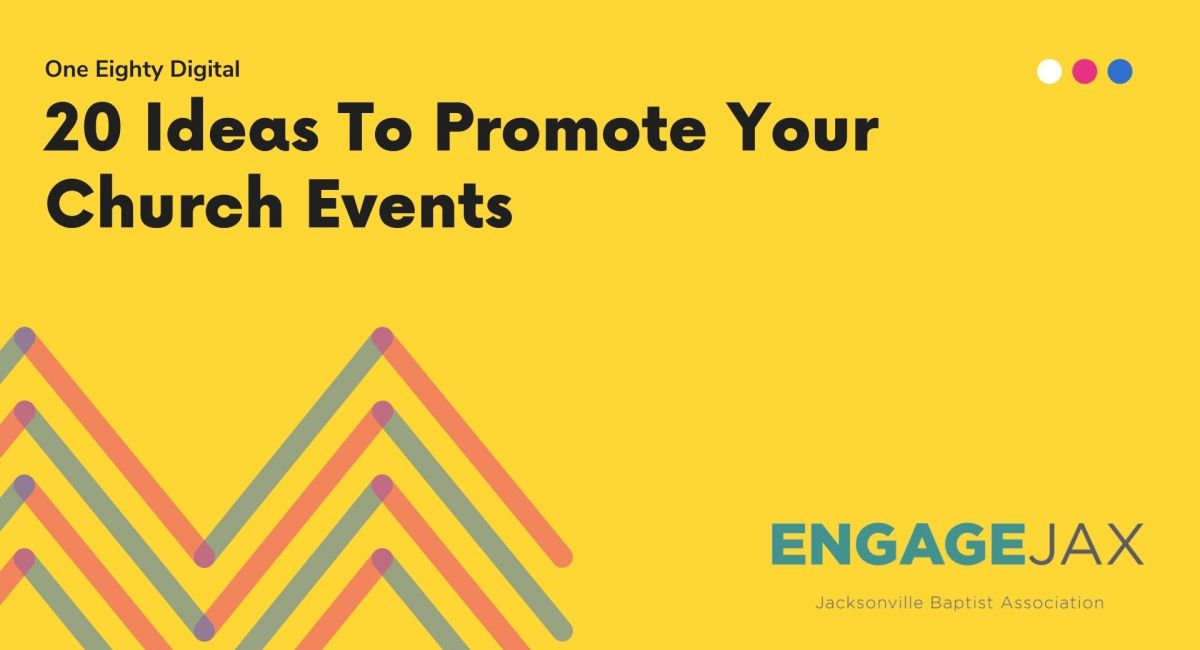
20 Ideas to Promote Your Church Events
Table of Contents
- Promoting Events
- Traditional Methods of Promotion
- Digital and Social Media
Promote your next church event with some fresh ideas. When you host church events they can become lost in the sea of signs people pass or be easily forgotten unless creative and new promotion techniques get infused into the promotion strategies. It’s always worthwhile to have a library of new and fresh ideas you can use to create, elevate, and expand your church events. We’ll walk through 20 ideas we have had or seen that will help get the word out in your community about your events. Take what you can and build your strategies with innovative ways to be seen and have your events be found online.
If You Host an Event, You Must Promote It
We thought now might be a good time to share that we believe promoting events is an essential part of hosting events. No one can come if they don’t know the event is happening. We know you know this, but how do people share church events? How can you reach everyone to let them know? Well, that is where it gets a bit trickier. But I hope we can all agree that you must be promoting events you want people in your community to come to, whether your desired audiences are inside or outside of the congregation. How much or how little promotion goes ahead of sharing an event is entirely up to the event itself, the budget you have, and your reach in your community and online. With that said, here are some things to consider before jumping into promotion strategies.
20 Ideas for Promoting Church Events:
Traditional Methods of Church Event Promotion
- Be Seen—Get some street visibility with things like flags, yard signs, banners, and marquis.
- Community outreach—Leave flyers at restaurants, salons, schools, any agreeable public place that would make sense for your audience.
- Teamwork—Get your congregation in on sharing the church event. Ask your leadership team to post it themselves, share the event on their job site if they work elsewhere, and to participate and share their preparations for the event by tagging the church. Let people know that everyone is excited. Sharing that excitement creates buzz and anticipation.
- Invite cards-Use the time-honored tradition for church events, printing invite cards. Really it’s not the card that gets someone to come, though having the details handy is well, handy, but the idea that someone they know is handing it to them adds legitimacy. And let’s face it, social media is struggling now with some generations. Younger ones aren’t on Facebook and older generations may not be on any platforms. Having a few different strategies is good. But there are all sorts of people who use all sorts of mediums to find out about events.
- Mailing invites—We know mailers are another old-style type marketing tactic. And lots of mail gets thrown away. But if you know of particular neighborhoods or communities where people would be most likely to attend, then the mailers or invite cards can make a difference depending on how big and how important the event is to the church and the community.
- Paid Ads—Big events could also warrant an ad through your local radio station. Many Christian radio stations across the country do paid advertising and would be happy to promote your event. It can be expensive, based on placement and number of runs, but if it’s a big enough event, it could be an idea worth exploring.
- Community Groups—Join the BBB, and townhall groups to stay in the know on community needs. Maintain relationships with community leaders to spread the word about your church.
- Partnering—With other churches to host events and/or share their events and ask them to share your events assuming you aren’t overlapping on event dates. It’s good for churches in a community to work together to build the kingdom of God. Many church leaders are tired of being siloed and this is a tide that’s beginning to change for the better. Now is the time to shake hands, make calls, have lunch chats to get to know and build relationships with other church leaders to be able to support one another when needs arise on both sides.
Digital and Social Media:
- Create a Facebook Event—See our post on facebook and wins on social media.
- Post about it on all the social media platforms you’re on (Use a Facebook event or website registration page, remembering that your choice will dictate how you collect information for your church)
- Make Your Website Pop—Consider adding a pop up on your homepage so visitors to your website see an immediate message letting them know about the church events. Make sure to allow them an easy way to close it or make it time out after 10 seconds or so.
- Go Live—Going live is really beneficial and there are plenty of places to get started. Start with Youtube, Facebook, Instagram with announcements and details for the event in the live recordings. The live function allows you to interact with live audiences as well and answer questions. You can save this and post it as a video as well.
- Graphics—Have shareable graphic images created with details (what, where, when, who, why). Send these out via social media and share with your church members so they can share on their personal social media as well.
- Ads-Events with any budget should spare some for Facebook, Twitter, and/or Google ads. These platforms allow for hyper-targeting and are increasingly easier to use for simple projects. If you can spare some money and time they can be well worth the it, even if just for branding. Facebook especially allows you to simply boost posts which can be easy for almost any user.
- Video content is king. Create animated gifs, movie files, or mp4s. They will help your content be seen and more easily shared.
- Event page on your website—Be sure to have the event page on your website and/or app easy to find at the top and bottom of your homepage.
- Spread Out the Ideas—Use a multi-phase strategy for promotion (tease, launch, details, fun, etc)
- Build Suspense—Tease out your event in advance. Depending on the event you’ll want to get the word out 1-2 months prior. For smaller events a few weeks is ok too, on things like size, budget, and time commitment.
- Getting to Know You—Do an interview with the event planner, pastor, or leader who is working hard on the event. Think news interview style parody to be silly and fun. This can go on Youtube, Facebook, Twitter, your website and Instagram stories. It can be a super short, unscripted way to boost awareness and add a personal touch to the event.
- Things To Do—Add your event to local event websites. Most communities large and small have websites that have event calendars for “things to do” in the community. Some even have family-friendly event sections. These types of sites are just a search engine click away and typically it’s free to add your event. But you could also consider advertising through the sites that send out social media pushes or emails to their audiences. Ex. In Jacksonville there are these sites: https://www.news4jax.com/community-calendar/#/ and https://fun4claykids.com/. Most community or local news sites also have these types of calendars. Look into it and add it to your strategy.
Events are a part of church community involvement. As the hands and feet of the body of Christ we know we should be in the community and actively improving the community. One way many churches do this is through fun and meaningful activities and events. But we can’t have successful community outreach without successful community awareness campaigns so some of these ideas are long term goals that will help you promote successful church events over time, and that’s ok! Have some short term goals and long term goals and hopefully this list will help you make some plans, make some goals and achieve great events and deep community partnerships.




